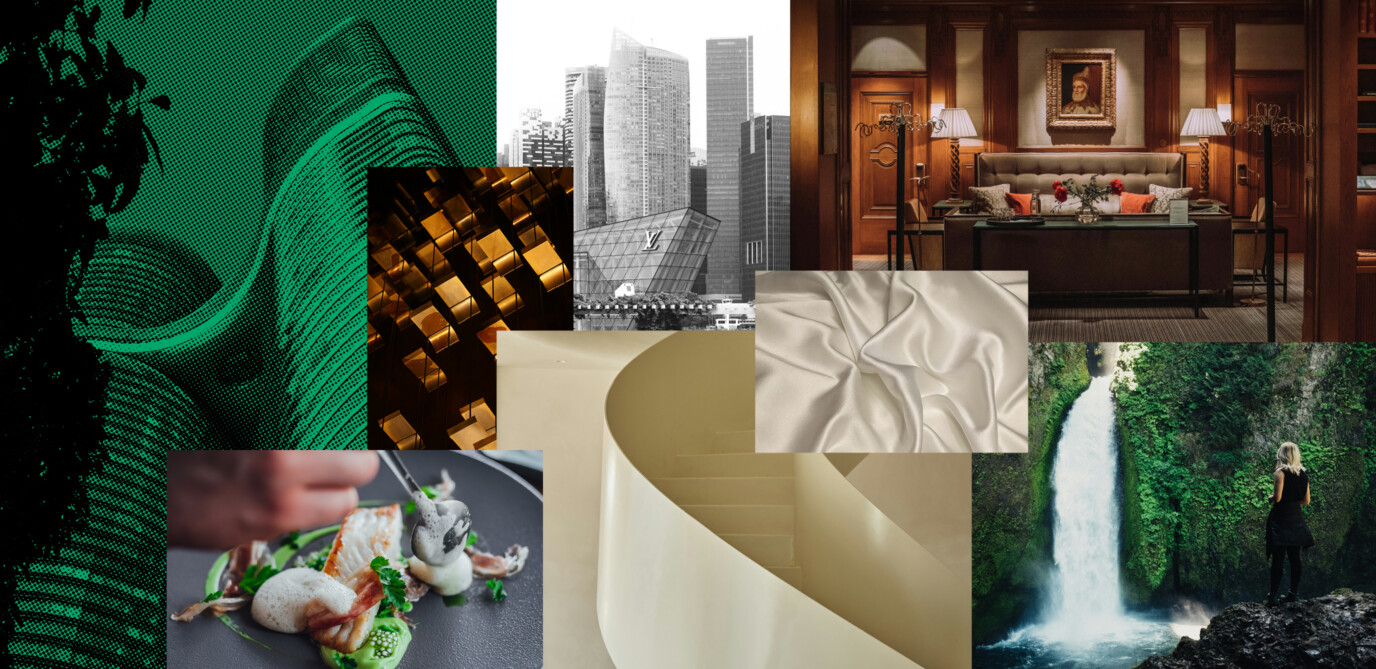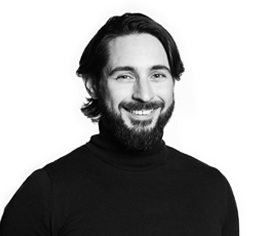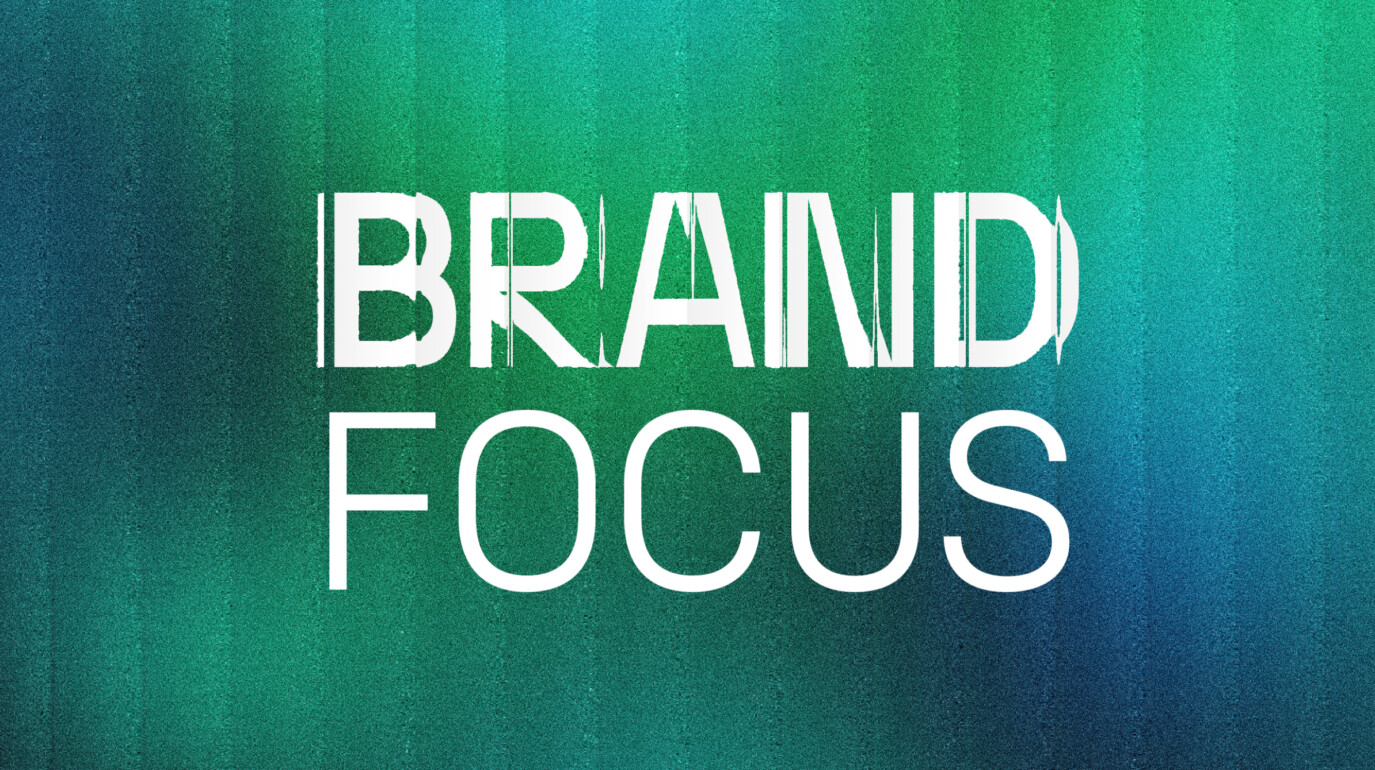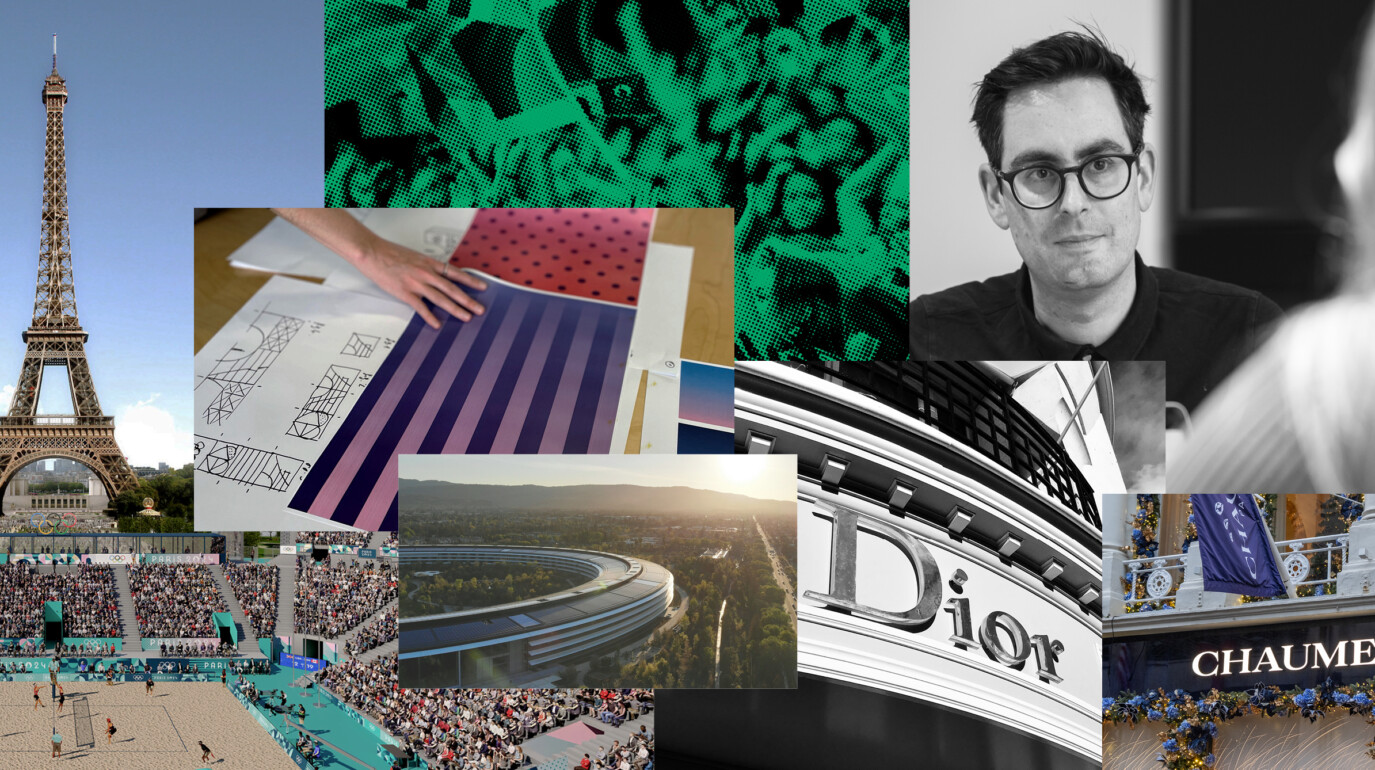
AUTHOR: LUDWIG DURAN
READ TIME: 5 MINS
The luxury hotel market might be booming, but in a competitive space brands must avoid getting lost in the crowd. Ludwig Duran explores how luxury hotel businesses can use brand to drive distinction and memorability in an increasingly saturated market.
Projected to be worth $171.05 billion in 2025 (up from $154.32 billion in 2024), the luxury hotel category is enjoying something of a golden era – cities like London, Amsterdam and Singapore are seeing an unprecedented number of openings, with the sector forecast to grow at a CAGR of 4.5% from 2026 to 2033.
At the centre of this gold rush are the increasingly affluent middle classes. With a thirst for travel and money to spend, they’re looking for high-end destinations that blend signature luxury with flavours of local culture.
There’s also a growing desire for more experiential travel, with tourists looking for experiences that feel tailored, meaningful and sustainable. A recent example is the much-talked about ‘calmcation’, a getaway focused entirely on tranquillity; think rest and reset programmes, silent travel packages, forest bathing and quiet zones, all designed with the zen-seeking traveller in mind.
But trends aside, it’s clear that the luxury hotel market is growing and increasingly profitable – and that as a result, competition is fierce.
As well as the usual suspects – Accor, InterContinental, JW Marriott, Shangri-La and Grand Hyatt – emerging entrants are now entering the fray, namely non-native hotel brands keen to capitalise on a growing market: Bvlgari, Dior, Versace, Louis Vuitton, Armani and Yves Saint Laurent, among others.
Their expansion into the category has been swift and decisive. In 2024, LVMH invested in boutique hotel group Les Domaines de Fontenille and Bvlgari Hotels & Resorts announced plans to open Bvlgari Hotel Miami Beach in 2028. In March of this year, Versace opened the Palazzo Versace Macau, the brand’s first resort in Asia.
“As well as the usual suspects, emerging entrants are now entering the fray, namely non-native hotel players keen to capitalise on a growing market.”
Not only are established and new players jostling for attention, but we’re also seeing the rise of branded residencies and luxury serviced apartments. The usual USPs – five-star service, prestige locations, Michilin-star food – have become both the norm and the bare minimum.
The brands that are winning, and driving that all-important RevPAR, are the ones thinking about how else to underline the originality of their luxury offer – whether that be through brand signatures or the holistic brand experience.
When it comes to standing out, here are some ways to leverage brand to demonstrate what sets you apart.
1. Define what makes you different
It might be where you’re from, the nature of your heritage or even a unique perspective on the world. With your audiences in mind, translate this difference into what makes you desirable. What are travellers looking for? What are you singularly placed to deliver?
Aman Resorts, whose USPs are ultra-luxury minimalism, privacy and cultural authenticity, convey this through architectural minimalism, connection to local heritage and signature low-key service. Everything about the brand and brand experience speaks to their mantra of peace and privacy, something that’s increasingly important to ultra-high-net worth travellers.
Then you have Sofitel’s recent brand evolution, which was part of an effort to reposition the business as a luxury-oriented player. This work focused on reframing its inherent French-ness as a mindset that joyfully embraces the paradoxes central to French culture – namely, that of tradition versus rebellion. This helped create the framing principles that allow Sofitel to express its French-ness in a way that feels new and relevant.
“In a category where established and new players are jostling for attention, the usual USPs aren’t enough.”
2. Use your uniqueness to redefine the hotel experience
Thriving in the luxury space is no longer about competing on service or the opulence of the setting. It’s about delivering one-off unrepeatable experiences. Experiences that meaningfully enrich lives and that delight, surprise, renew and transform.
In part, this is about ever evolving levels of personalisation. It could be offering in-room yoga and fitness kits for guests looking to prioritise health and wellness, tailoring menus based on past dining choices or offering ever-popular embroidered monogrammed pillows or robes. The devil really is in the detail.
3. Codify your uniqueness
Taking advantage of every touchpoint at your disposal, develop a set of distinctive brand signatures across visual and verbal brand identity, service behaviours, architecture and environmental design.
Thoughtful touches to the guest experience should reinforce the brand’s values – if sustainability is a focus, maybe it’s recycling wine bottles in the restaurants and bars; it could be personalised in-room music playlists or minibars. Clever brands lean into their values and essence – so at the aforementioned Aman Resorts, where guests value privacy, there are no check-in desks. Instead, check-in happens in rooms. Banyan Tree, a brand that prioritises peace and soulfulness, offers a calming hand-washing ritual when guests arrive.
4. Where beneficial, leverage the dominance of the Masterbrand
Marriott, IHG and Hilton all use a strong Masterbrand to operate a house of brands model. Where the Masterbrand awareness is strong, it creates a halo for product brands and strong product brands then in turn reinforce the Masterbrand. Think about how and where to reinforce the Masterbrand connection – particularly if there are strong and historic luxury connotations.
In the same vein: look at how Marriott Bonvoy is knitting together its portfolio, building loyalty and using synergies between its brands. Arguably they’re leading the category forward and showing that an effective brand portfolio architecture is critical to realising the true value of brand as business asset.



